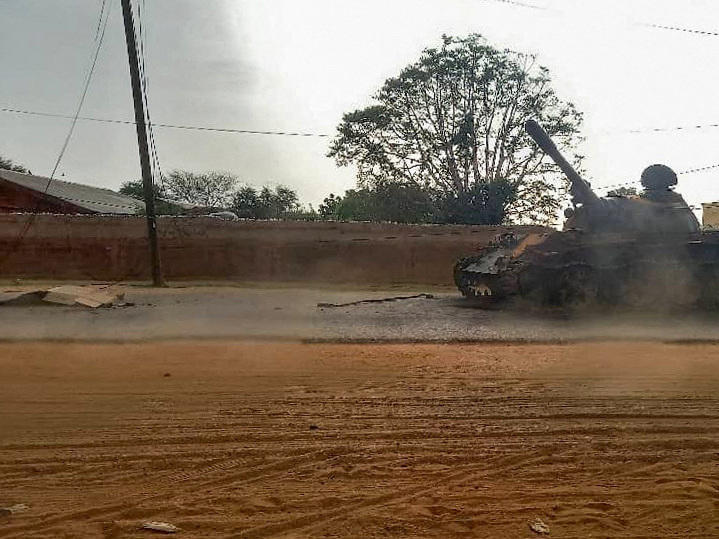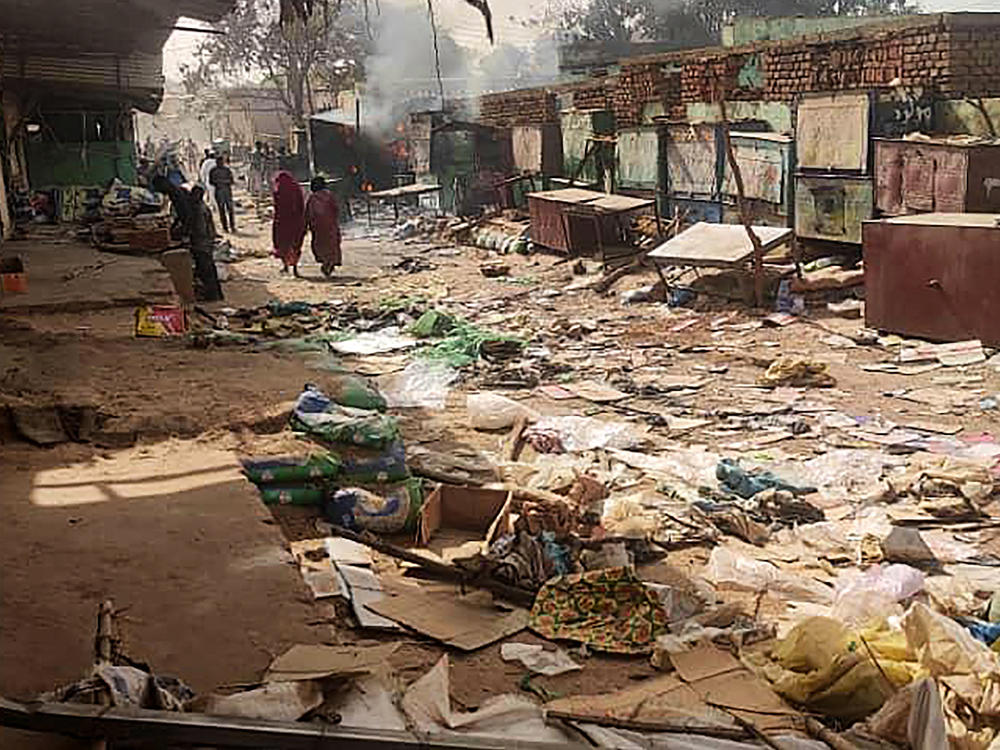Section Branding
Header Content
In Sudan's Darfur, a rights group calls for an investigation into mounting atrocities
Primary Content
A new report by Human Rights Watch reveals the extent of killings and other abuses against largely non-Arab ethnic groups in Sudan's Darfur region since fighting between the Sudanese army and a powerful paramilitary group erupted in April. Many of the abuses amount the war crimes, the rights group says, and is calling for the International Criminal Court to investigate them.
The violence, including mass killings of men, women and children, echo the atrocities of the Darfur war 20 years ago, which saw widespread ethnic cleansing.
In one case in May, Human Rights Watch says the Rapid Support Forces (RSF) and allied Arab militias "summarily executed" at least 28 ethnic Massalit people in the town of Misterei. RSF and allied fighters who are at war with Sudan's army attacked the town and the armed self-defense groups surrounding it. Then they pursued civilians who had fled and hid from the conflict, and gunned them down in the streets, going door-to-door, and targeting them as they hid in mosques and schools, the report says.
In a school, gunmen entered classrooms and executed the men they found there, witnesses said. They also shot at children and women. The men shot dead 26 people, while 11 people survived and spoke to Human Rights Watch. The survivors said there was no fighting in the school when the gunmen searched it and began killing.
Men and boys in the town were especially targeted by the RSF and allied militia, who burnt Misterei to the ground, according to refugees. Satellite imagery investigated by HRW confirmed the accounts, showing how the town had been razed.
The conflict in Sudan has led to levels of fighting and ethnic violence in Darfur not seen in decades, since the genocidal war in 2003, in which hundreds of thousands of people were killed and millions displaced.
"Since the conflict in Sudan broke out in April, some of the worst atrocities have been in West Darfur," said Jean-Baptiste Gallopin, senior crisis and conflict researcher at Human Rights Watch. "The accounts of those who survived recent attacks in West Darfur echo the horror, devastation, and despair of Darfur 20 years ago," he said, adding that Sudan's international and regional partners should sanction RSF and Arab militia leaders responsible for these attacks.
In almost three months of conflict between Sudan's army and the RSF, 217,000 people have fled to neighboring Chad, arriving every day as atrocities mount in Darfur.
Human Rights Watch says it's urging international bodies like the United Nations Security Council and the African Union to immediately call for investigations and humanitarian access.
Aid operations have largely stopped in West Darfur, the most affected region, since late April following attacks on humanitarian aid and property, and escalating violence. An aid worker told HRW that Darfur has been "largely cut off from new assistance."
Copyright 2023 NPR. To see more, visit https://www.npr.org.


